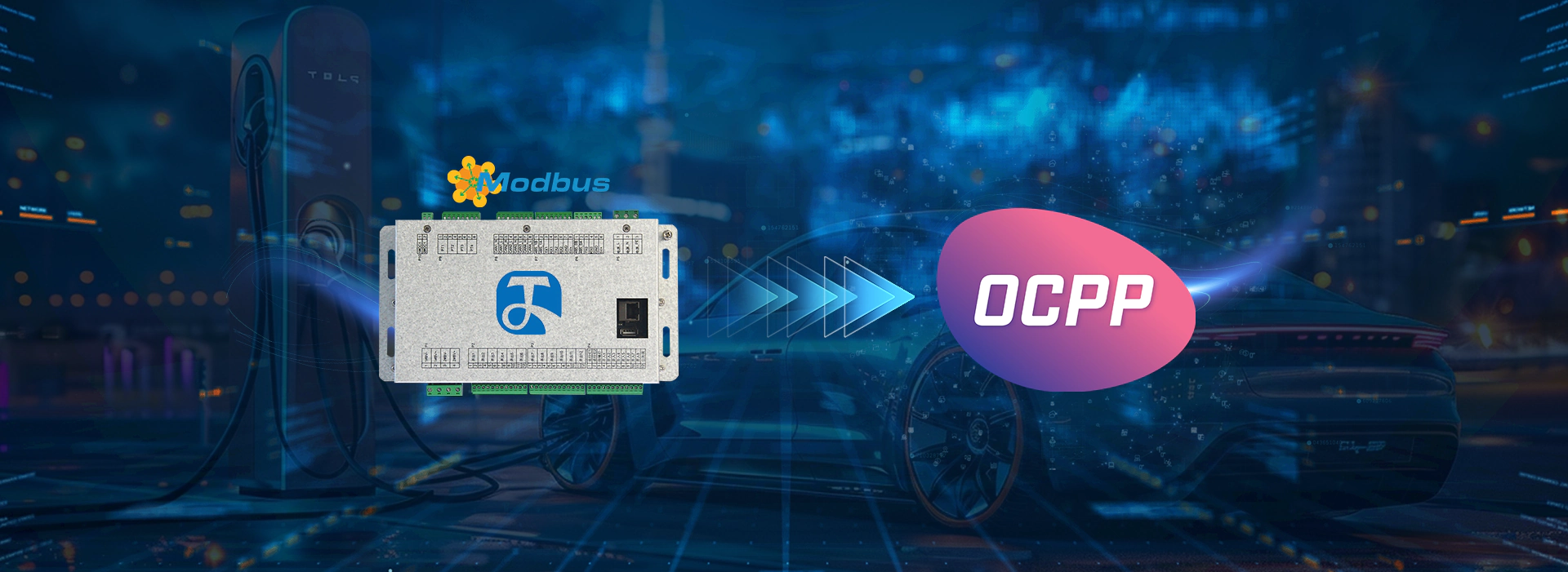
Simple charging motherboard conversion OCPP protocol
With the rapid development of electric vehicle charging infrastructure, the demand for charging stations in overseas markets is booming. The interoperability of charging stations domestically and internationally has become a key requirement in the industry. OCPP, as a globally accepted open communication standard, enables compatibility between charging stations and management systems of different brands and models. It is also an essential protocol for domestic charging stations to be exported abroad. However, many manufacturers using simplified charging mainboards face challenges as these boards are too basic to directly support the OCPP protocol. By utilizing an external OCPP protocol 4G gateway, it is possible to efficiently and cost-effectively convert simplified charging mainboards to support OCPP, thereby enhancing device intelligence and market adaptability.

▶ Introduction to the OCPP Protocol Gateway
An external OCPP protocol gateway is an independent hardware or software device that acts as a bridge between non-OCPP protocol devices and a Central Management System (CSMS). It converts the data output from simplified charging mainboards into OCPP-compliant data formats and communicates with management systems via standard communication methods such as WebSocket or HTTPS.
▶ Key Functions of the External Gateway
- Protocol Conversion: Converts proprietary communication protocols or traditional protocols like Modbus from simplified charging mainboards into the OCPP protocol.
- Communication Management: Supports secure and stable two-way communication with the CSMS.
- Data Processing: Parses data from simplified charging mainboards and re-packages it into OCPP-compliant data formats.
- Security Assurance: Provides HTTPS encryption, digital certificate authentication, and other features to ensure communication security.
- Remote Management: Supports firmware updates, diagnostics, log recording, and other functions.
▶ Advantages of Using an External OCPP Protocol Gateway
- Cost Reduction: Eliminates the need to replace existing simplified mainboards; adding a gateway device is sufficient for protocol conversion.
- Quick Deployment: External gateways are typically plug-and-play with simple configurations, enabling rapid integration with CSMS.
- High Flexibility: Supports multiple communication interfaces (e.g., RS485, CAN, Ethernet), making it compatible with various types of simplified mainboards.
- Strong Independence: The gateway operates as an independent device that does not interfere with the functionality of existing mainboards, simplifying maintenance and future upgrades.
- Enhanced Scalability: Enables additional advanced features such as remote monitoring, user authentication, and dynamic load management through the gateway.
▶ Conclusion
By using an external OCPP protocol gateway, simplified charging mainboards can be upgraded to support the OCPP protocol without replacing existing hardware. This approach offers low costs, fast deployment, and high flexibility, providing an efficient pathway for modernizing traditional charging station equipment. As interoperability demands continue to grow, this solution will play a significant role in advancing electric vehicle charging infrastructure globally.